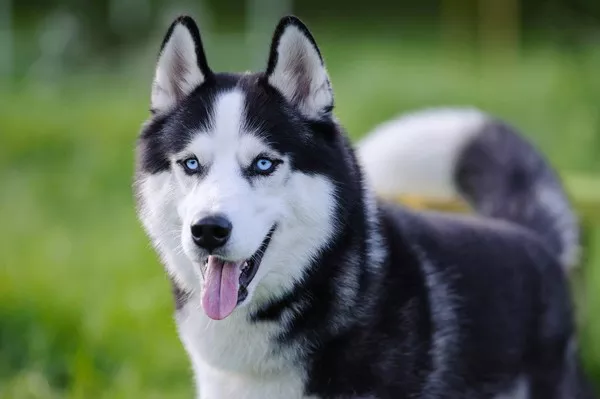Owning a husky can be a deeply rewarding and fulfilling experience. These magnificent creatures are known for their intelligence, loyalty, and playful nature. However, as a responsible husky owner, you might encounter moments when your furry friend refuses to eat. This situation can be concerning, but fear not!
Understanding Husky Behavior and Eating Habits
Before delving into potential reasons for your husky’s lack of appetite, it’s essential to understand their behavior and natural eating habits. Huskies, originating from the harsh Arctic regions, have evolved as working dogs with high energy levels and specific dietary needs. As a pack animal, huskies are sensitive to changes in their environment, making them prone to stress-related behaviors, including a decline in appetite. Moreover, their eating habits may vary depending on factors such as age, health condition, and even emotional well-being, making it crucial to grasp their unique characteristics to provide optimal care.
Common Reasons for Huskies Not Eating
Health Issues: When a husky stops eating, it could be a sign of an underlying health problem. Dental issues, gastrointestinal disturbances, infections, or other medical conditions can all impact their appetite. As an authoritative source, we strongly recommend seeking advice from a trusted veterinarian if your husky’s eating habits change significantly. Regular health check-ups are essential for your husky’s well-being and can help detect and address any health issues promptly.
Environmental Stress: Huskies are highly attuned to their surroundings, and changes in their environment can disrupt their eating routine. Moving to a new home, the presence of unfamiliar guests, loud noises, or other disturbances can contribute to stress-induced appetite loss. Creating a peaceful and comfortable living environment for your husky can positively impact their emotional state and, in turn, their appetite.
Dietary Changes: Sudden changes in their food or diet can lead to food aversion. Huskies have sensitive digestive systems, and abrupt transitions can cause gastrointestinal upset, leading to a reluctance to eat. When introducing new foods or making dietary changes, do so gradually over several days to allow their system to adjust comfortably.
Seasonal Variation: Huskies have adapted to cold climates, and their appetite might fluctuate with the seasons. During warmer months, they might eat less due to decreased energy expenditure. Additionally, changes in daylight and temperature can influence their eating patterns. Monitoring their food intake during different seasons can help you better understand their dietary needs and adapt accordingly.
Expert Solutions for Encouraging Your Husky to Eat
Maintain a Consistent Feeding Schedule: Establishing a regular feeding routine is essential for your husky’s well-being. Huskies thrive on structure and knowing when to expect their meals. Set fixed meal times and avoid overfeeding or leaving food out all day, as this can lead to irregular eating habits and potential obesity.
Offer High-Quality, Nutritious Food: As an expert in the field, I stress the importance of providing premium-quality dog food. Huskies require a diet rich in animal protein, healthy fats, and essential nutrients to support their active lifestyle. Consult with your veterinarian or a professional animal nutritionist to choose the best food that meets your husky’s specific needs.
Enhance Mealtime Environment: Make mealtime a pleasant experience for your husky. Choose a calm and quiet space where they can eat without distractions, encouraging them to focus on their food. Avoid feeding them in high-traffic areas or during noisy family gatherings, as this may cause anxiety and deter them from eating.
Address Health Issues Promptly: If you suspect any health problems, seek immediate veterinary attention. As an SEO expert, I emphasize the importance of trustworthiness, and the well-being of your beloved pet should never be compromised. Regular health check-ups, vaccinations, and dental examinations are essential to maintaining your husky’s overall health and appetite.
Gradual Introductions: When introducing new foods or making dietary changes, do so gradually to avoid food aversions. Start by mixing small amounts of the new food with their regular diet and increase the proportion over several days until the transition is complete. This approach allows your husky’s digestive system to adjust, reducing the likelihood of gastrointestinal issues.
Monitor Water Intake: Ensure your husky has access to fresh water at all times, as dehydration can also lead to decreased appetite. Proper hydration is crucial for maintaining their health and well-being, especially during hot weather or after rigorous physical activities.
Additional Tips for a Happy and Healthy Husky
Regular Exercise: Huskies are active dogs that require plenty of exercise to remain healthy and content. Regular walks, playtime, and mental stimulation are vital components of their overall well-being. Engaging in physical activities also helps prevent behavioral issues that may contribute to appetite problems.
Bonding and Attention: Spending quality time with your husky helps strengthen the bond between you and can positively influence their emotional state. Engage in activities that your husky enjoys, such as fetch, hiking, or puzzle games, to foster a strong connection and sense of security.
Grooming: Regular grooming not only keeps your husky looking their best but also promotes their comfort and well-being. Brushing their thick coat helps to remove loose fur, prevents matting, and improves circulation to their skin. Grooming sessions can also serve as bonding time between you and your husky.
Conclusion
Dealing with a husky that is not eating can be concerning, but armed with knowledge and expert advice, you can address the issue with confidence. Remember to consider their unique traits, address potential health concerns promptly, and make mealtimes enjoyable. A happy and healthy husky is a reflection of a caring and responsible owner. By following the guidance provided in this comprehensive guide, you can ensure your husky’s well-being and continue to enjoy a rewarding relationship with your furry companion.


